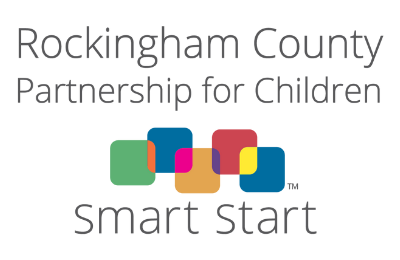Samantha’s Story
Written by: Maggie HarperIt was 2018 when Samantha Reynolds found out about the pregnancy. She was excited, but she was young and unprepared. She had just graduated from college, and she and her boyfriend were living with his father. They were searching for stable work, but as the job hunt and the pregnancy progressed, it became increasingly clear that Samantha wouldn’t be able to work. Few people wanted to hire a ticking time bomb that may give birth at any moment, and on top of that Samantha was sick. Rather than gaining healthy baby weight, she lost fifteen pounds. Some days, she could barely get out of bed. Like many young women, she lacked education on resources like WIC and Pregnancy Medicaid for which she may have been eligible. Her boyfriend was working constantly, but supporting two and a half people on one salary was difficult. The baby was coming soon, and Samantha was beginning to wonder how they would take care of him.
At the same time, a friend of Samantha’s was also pregnant. She told Samantha about a program she was in called the Nurse Family Partnership. Every week, a nurse came to her home to take her blood pressure, bring her diapers and toys, help her keep up with her doctor's appointments, and, most importantly, to support her emotionally. Any Rockingham County mother who fit a certain income bracket was eligible, as long as she applied before the twenty-eighth week of pregnancy. Samantha applied, and at twenty-seven and a half weeks, she got a call back from Liz, The Nurse Family Partnership Coordinator at Rockingham County Partnership for Children (RCPC). Not long after that, a nurse named Robin started coming to see Samantha at the house. In Samantha’s words, “She was a God-send for my family.” Robin helped Samantha get vouchers for professional clothes and access to food banks. She plugged her into resume workshops and brought over materials like car seats. More than anything, Samantha says, “Robin made me feel like a person worthy of the services I was receiving.” The two women became fast friends.
A few months later, Robin and her program coordinator Liz approached Samantha about serving on the Family Stakeholders Advisory Council. Samantha accepted the responsibility. Her passionate work there prompted Robin and other RCPC team members to think of Samantha when a job posting at the Partnership opened. The position sought a Parent Educator under the Parents as Teachers Program. She applied and was hired. “It was like divine intervention,” Samantha marvels at her transition. “It’s an honor to be in this position, to pay it forward. To do good in the world and help people in the same way I was helped.”
Samantha, along with the rest of the ladies at Rockingham County Partnership for Children, do good in the world every day. As a Parent Educator, Samantha provides parenting education and support by building relationships with parents of children up to age five through home visits, group connections, developmental screenings, and resource provision. She also co-facilitates Kaleidoscope, a weekly child-directed learn & play group that brings the community together and deepens relationships between parents and their kids.
Only two months into her position, Samantha has a lot on her plate, but she hopes to add more. She recognizes a need for a special education curriculum in the county. Samantha has already begun to influence policy-makers in favor of the program. At the annual Eggs and Issues event (hosted by the Rockingham County Partnership for Children, the Rockingham County Education Foundation and the Reidsville Area Foundation) this winter, she connected with a policy-maker over shared concern for their children. Around age one and a half, the verbal progress Samantha’s son Zayne had been making came to a screeching halt. He stopped speaking entirely. Today, he’s in speech, occupational, and physical therapies, and has received referrals for autism testing. But screening a child before the age of three is expensive, so Zayne will have to wait until he turns three. The policy-maker at the event had a similar experience with his child, but with a different outcome. Access to financial resources enabled him to get his son the help he needed. Samantha and Zayne’s story illustrated an alternate ending that the policy-maker had not considered. Samantha gave a face to funding talk, and portrayed a very real need in the community.
That is the power of story. It personalizes, it manifests, it operationalizes. Samantha’s own story has the potential to do the same. “I hope to make an impact and support people like Robin, and Liz, and the others who helped me, but they seem so accomplished. I don’t know if I’ll ever get to that level,” she laments. But to anyone who has encountered Samantha in personal and professional settings, it is evident that her story is powerful, and that she is well on her way to making the positive influence for which she strives.
